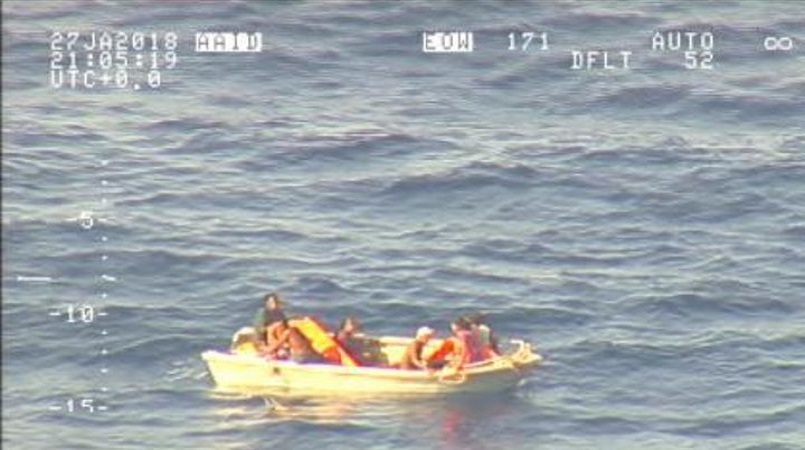
More aid money should be put towards sustainable shipping in the region to avoid tragedies like the recent Kiribati ferry disaster, according to Pacific maritime researcher Peter Nuttall.
He said disasters like the MV Butiraoi sinking are waiting to happen, have happened before and are likely happen again.
At least 80 people are missing presumed dead after the ferry sank last month en route from the island of Nonouti to Tarawa.
Dr Nuttall said systemic issues have to be addressed including the lack of investment and more renewable energy funding earmarked for maritime transport.
He pointed out that maritime transport is a public good in the far flung islands of the Pacific.
"Up here in the Pacific one of our largest burners of fossil fuel is maritime but all the money that we have put up so far is going into electricity.
"If we'd diverted some of that funding into better generation shipping we might not have some of the problems we currently have," Dr Nuttall said.
Intra-island shipping is an economically marginal activity in the Pacific, with few ship operators especially in the outer remote islands, running a profit, he said.
"You end up with old boats, really poorly maintained, poorly qualified seamen, no money for maintenance programmes, huge demand for travel and people trying to meet that need so it becomes really difficult when a ferry goes down to turn around and say you're a commercial operator, you're responsible.
"There's something of a witch hunt going on at the moment which I don't think is entirely justified."
Dr Nuttall said maritime transport lagged well behind other energy sectors when it came to the issue of decarbonisation, even with the Pacific's highly active role in the area on the international stage.
"We're struggling to understand why there is a lack of emphasis in this area when there is so much technology that is available, there are so many simple solutions that are available that are not even being trialled, not prioritised that could make enormous difference not only in impacting on the amount of fossil fuel burnt in the industry but providing better generation technology, more appropriate, more affordable and cleaner technology," said Dr Nuttall, an advisor to the Micronesian Centre for Sustainable Transport.
Experiments done in Fiji in the 1980s during the last oil crisis showed that for minimal investment, large ferries were fitted with sails and were saving 23 to 30 percent across all routes in Fiji, according to the researcher.
He said the Micronesian centre was working with people in England, Germany, and Holland who were itching to come out to the Pacific and work on the issue but there was just no political prioritisation.
"If you have newer ships, if you have better technology, you're obviously going to have higher standards of safety. If you don't have to spend 50, 60, 70 percent of your operational capital on putting fossil fuel into a boat, you have more money to spend on safety.
"You have more money to spend on maintenance, you can pay better rates, you can pay better wages.
"I mean I have a PhD in the field but you don't need it, it's not rocket science."
Dr Nuttall said an initiative is underway in the Marshall Islands which is moving towards a low carbon transport framework supported by $US12 million worth of funding from the German government.
"We're looking at the government shipping fleet and small ships along the scale of the ship that was lost in Kiribati and going how can we build and supply better generation shipping, reduce fuel bills and increase connectivity, affordable connectivity between the island states?"
The region's scientific and technical agency, the Pacific Community, is involved in efforts to reduce fuel consumption and better maritime safety via its hosting of the Maritime Technology Cooperation Centre in collaboration with the Pacific Regional Environment Programme (SPREP).
"Now is the perfect time to change the way of operating vessels and maybe try to bring new technologies and newly designed vessels into operation in the region," said the Pacific Community's Deputy Director Transport, Thierry Nervale.
